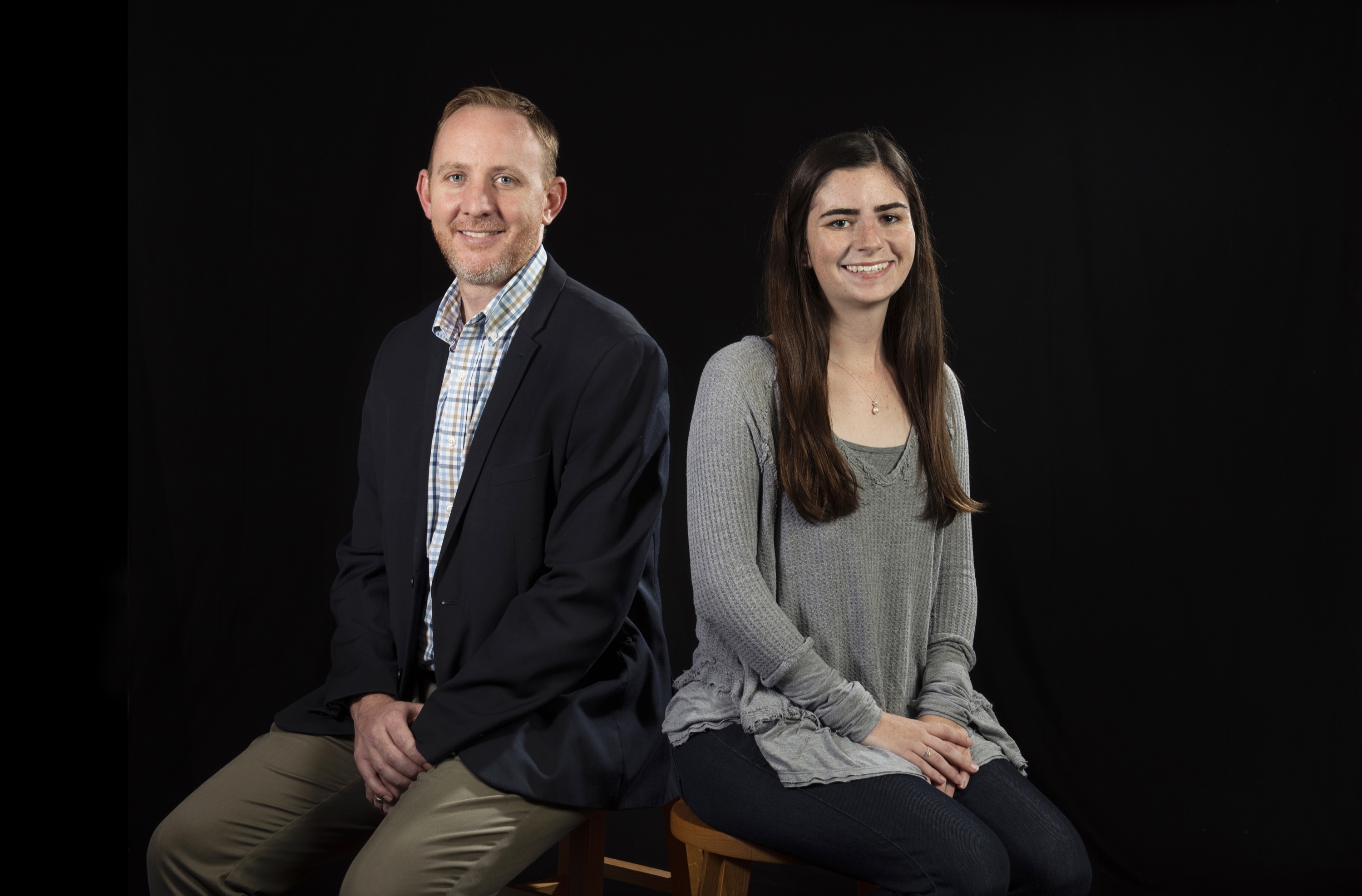Nicole Plante '20, with the guidance of her mentor, Assistant Professor of Geography Sandy Marshall, is examining how refugee families create belonging in the United States.
It was in her Arabic class that Nicole Plante ’20 discovered her passion for working with refugees and learning about the Arabic language.
It was there that Lecturer Shereen Elgamal first suggested Plante get involved with immigrant and refugee outreach through Elon Volunteers! to expand her knowledge and practice speaking Arabic. Plante began interning and tutoring refugees at the Center for New North Carolinians in Greensboro, N.C., and became passionate about the rights of refugees and immigrants and the issues facing them.
In the spring of Plante’s first year at Elon, she was accepted laterally as an Elon College Fellow, which brings with it the expectation of conducting research. She knew right away that she wanted to focus on refugees.
“I wasn’t sure exactly what I wanted to do, but I knew that that was where my passion was and that’s where my interests were,” Plante said.
From that point, Plante found Assistant Professor of Geography Sandy Marshall, whose expertise includes the experience of refugees. During Plante’s sophomore year, the two talked and studied literature and noticed that, while there was information about refugee mental health, there was not much research that explored “the way refugees have agency in their new lives after resettlement,” Plante said.
In the spring of her sophomore year, Plante was awarded the Lumen Prize. A new cohort of Lumen Scholars is selected from a highly competitive applicant pool each spring, with each scholar receiving a $20,000 award to support undergraduate research. Lumen scholars receive monetary support for their various research needs, and work closely with faculty mentors to develop and bring their research to fruition.
“When I found out I got Lumen, I was honestly shocked,” Plante said. “I still remember I was standing in the Phi Beta Kappa Commons and found out. I was shocked but I was really excited.”
Marshall, now Plante’s mentor, is a human geographer whose work focuses on migrant and refugee children and youth with a particular interest in conflict and humanitarian aid. With Marshall’s expertise and Plante’s passion for the topic, the two developed their Lumen project based on the need to elevate the voices of refugees in order to understand their needs more comprehensively – what is working for them and what is not.
Plante’s research focused mainly on data collection her junior year. She interviewed refugee youth and conducted participant observation of refugee youth and adults at the Center for New North Carolinians. It is clear to Marshall that Plante is passionate about the work.
“It’s an incredible feat that people can be uprooted from a country, spend sometimes years in limbo in a second country, sometimes in a refugee camp, or in precarious circumstances in the city, and then suddenly be resettled in a new country and in the United States have six months to become self-sufficient,” Marshall said. “And I think she was very interested in that process. One thing I thought was really interesting is she wanted to look at those internal family dynamics, and I think that came through her experience working with refugees.”
Now a senior, Plante is analyzing her data, writing and applying to present her research at conferences. Her research has uncovered themes so far that include how refugees create belonging and a feeling of security, as well as how spaces like schools and apartment complexes affect that sense of home.
“I think this question of belonging is so interesting,” Marshall said. “It sounds like it’s one of those words that we see and we use a lot, and it’s sort of unpopular parlance. We don’t always think of it as an academic concept, and yet it’s really at the core of so many of our debates we have in society right now.”
For Plante, one of the biggest takeaways from her research deals with issues surrounding refugee resettlement policy. She says that individual refugees aren’t always kept in mind and that their opinions and voices are not always elevated enough to have an impact.
“I think the biggest frustration for me has been seeing the number of barriers that refugees face that I feel like could be solved so much easier if their voices were taken into account when policies are made,” Plante said.
Although Plante is concluding her research at Elon and gearing up toward her future, she doesn’t quite feel finished.
“It feels like this is just the tip of the iceberg,” Plante said. “I feel like I have learned so much about refugees, but even just about people in general and how people create meaning through new experiences.”



